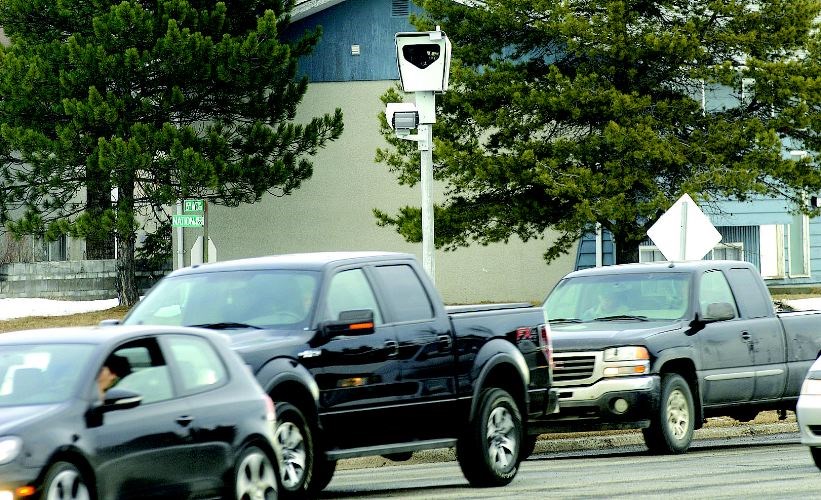VICTORIA - The B.C. government wants to renegotiate how it shares traffic-ticket revenue with municipalities as it prepares to generate even more money from new, automated, intersection speed cameras.
The Union of B.C. Municipalities said Wednesday that the province has served it with formal notice to begin consultations to change the traffic-fine-revenue sharing program. That program has given town and city governments the net revenue from roadside tickets for offences like speeding and distracted driving, since 2005.
"While the traffic-fine-revenue sharing agreement between government and the Union of B.C. Municipalities has worked well for all parties over the past 12 years, there are some fundamental changes underway related to automated traffic enforcement that may require updates to the agreement," Attorney General David Eby said in a statement Wednesday.
The changes include converting some of B.C.'s existing 140 red-light intersection cameras to catch speeding drivers on green and yellow lights, as well as upgrades to those intersections to make the cameras work, he added.
"These new sources of revenue and their associated costs to the province were not contemplated in the original traffic-fine-revenue sharing agreement," said Eby. "The funds from the red-light-camera program will not be used to cover ICBC's insurance losses. It is not unusual, however, where ICBC assumes the operating or capital cost of an enforcement program like this that ICBC is reimbursed from fine revenue to cover new costs. Such reimbursement is especially critical now, given ICBC's current financial state."
ICBC is expected to lose $1.3 billion in the fiscal year that ended March 31. The financial crisis prompted Eby to introduce legislation to set a $5,500 cap on pain-and-suffering claims for minor injuries.
The NDP government has insisted that the new intersection speed cameras aren't a return to the unpopular photo-radar program of the 1990s, and aren't intended as a cash grab to save ICBC. Eby said in March that municipalities, not ICBC, would get the money from the new intersection cameras.
An independent report in 2017 estimated that the speed cameras could generate as much as $89 million. But the government hasn't said how many of the 140 cameras will be activated for speeding, nor how many kilometres-per-hour over the limit will trigger a penalty. It's not even clear when the cameras will be activated.
Currently, traffic-ticket revenue is given to local governments in the form of unconditional grants. That totalled $58.1 million in 2016-17. The agreement allows the province to recover administrative costs before distributing the money to municipalities. But administrative costs for new automated cameras aren't covered under the agreement's current wording. The government is expected to incur costs to bring the cameras online, and employ special constables to check the automated tickets to ensure accuracy.
Municipalities worry that opening the door for consultation could result in the province either clawing back a bigger share or setting conditions on how it's spent.
"We don't know what it's going to be," said UBCM president Wendy Booth. "This is a flag that's been raised and we're not sure the colour of the flag."
Municipalities are already facing pressure over rising police costs, said Booth. The province's letter suggested automated cameras could give communities "greater flexibility" in deploying police because the officers wouldn't be needed to issue tickets at intersections.
Opposition Liberal critic Mike Morris said the only reason for government to crack open a revenue-sharing deal that has worked well for years is because it wants to keep more of the cash for itself.
"I think their whole intent right from the beginning was going in this direction," said Morris, a former solicitor general. "The minister back when they talked about the red-light cameras was talking about enhancing public safety, and the question did pop up about it being a tax grab and he assured everyone it wasn't. Now we see this happening."
The government has set a deadline for consultations to conclude by the end of July.



